Make the housing bubble deflate without being punctured. That seems to be the government’s goal. chino.
And one of the first victims of this new approach to Beijing is the second home developer in the country by number of sales.
- China registers 34 new cases of coronavirus, 10 of them due to local transmission
- China: hundreds of people fill a mall in search of the new iPhone 13
- Why China seems to be returning to the socialist path
The giant Evergrande goes through difficult times that put you on the brink of bankruptcy. The company has a huge debt that amounts to about US $ 300,000 million.
The company’s shares have fallen 80% so far this year, coinciding with the regulatory tightening imposed last year by the Chinese authorities.
During the summer of 2020, Beijing imposed a rule on the largest real estate developers that forces them to place their debt levels below certain metrics or “3 red lines” in reference to the liquidity, assets or debt of companies.
“The houses are for live in them, not to speculate”Said Chinese President Xi Jinping in 2017.
As for Evergrande, the authorities have shown that there will not be a total bailout, that is, that it will drop the company if it does not find money to pay its creditors by selling assets or parts of the business.
However, many analysts believe that the state is likely to nationalize the more than 1.5 million homes that Evergrande has in different stages of construction in China to prevent families from suffering if the conglomerate eventually collapses.
The Chinese real estate market is really atypical.
On average, 90% of citizens own their houses: almost 87% in urban areas and about 96% in rural areas, according to a study on housing in China carried out by the University of Albany, United States.
It is one of the highest rates in the world.
For comparison, in the United States only 65.3% of citizens own their home, while in Germany that percentage stands at 51.1%.
And it is that, as Diego Fernández Elices, general director of investments of A&G, explains to BBC Mundo, the “Chinese government’s main goal is common prosperity and the fact that so many citizens own their homes makes it a sector that cannot be dropped in any way ”.
The “common prosperity” to which Fernández refers is the slogan of the last campaign promoted by the Chinese president, with which he is trying to “Reduce a huge wealth gap that threatens the economic rise of the country and the legitimacy of the government of the Communist Party ”, picks up the Reuters agency.
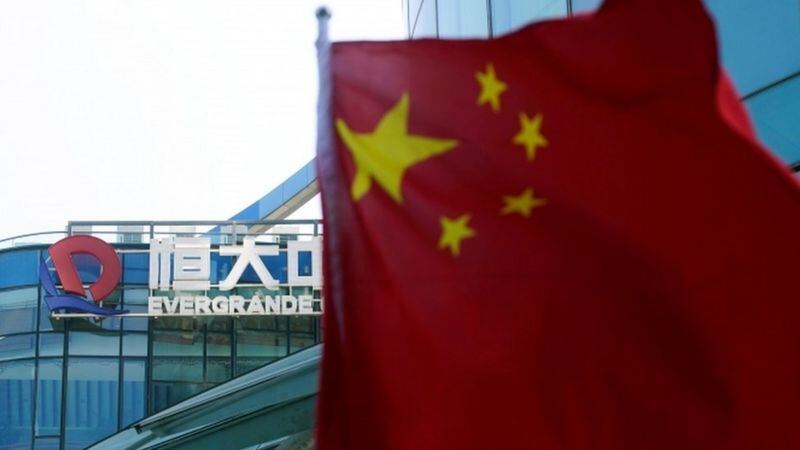
“According to the latest statistics from the Chinese Government, construction still represents around 30% of total employment and therefore it is too important to be ignored ”, says Yves Bonzon, director of the Swiss private bank Julius Baer.
It is what in economic jargon is called “Too big to fall”, or at least fall completely.
Behind this high percentage of owners there are some factors that have fueled an expansion of the sector for decades marked by ghost towns, disused infrastructure and a wild construction model, with exorbitant prices.
In 2020, the country entered what is known as “the era of 10,000 yuan (1,318 euros, US $ 1,548)”, referring to the fact that the square meter remained on average above that amount for several consecutive months, he explains. in a recent analysis by the EFE Agency.
The “Chinese dream”
One of the important factors that has contributed to the bubble is cultural.
“Chinese household wealth is built on brick, cement, and speculative fervor. But on the cultural side, not only is there an aspiration to be a homeowner, there is also an unwritten social demand that, for example when you are getting married, you must own property, ”explains Sam Lecornu, CEO and co-founder of Stonehorn. Global Partners.
“There are not many Chinese who consider renting as their first option. Owning property in China is, by definition, the equivalent of the american dream“, Add.
Just over 20 years ago, the Chinese real estate sector did not exist.
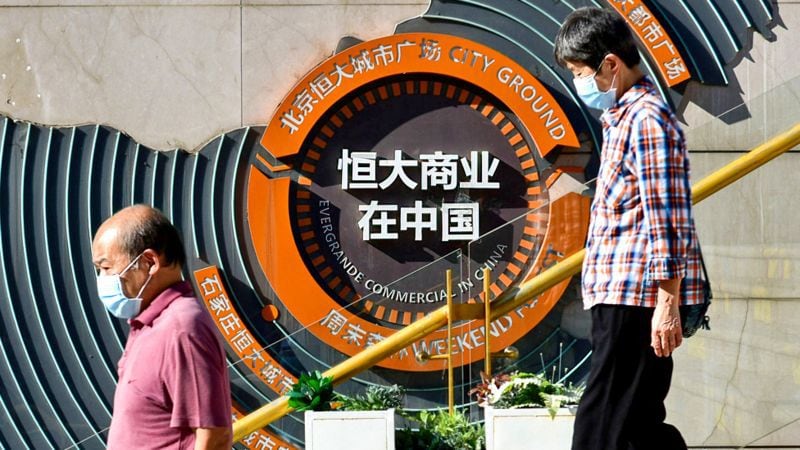
“In much of the second half of the 20th century, China was a mass public rental society, where private property represented less than 30%. Housing was considered a social welfare benefit provided with heavy subsidies from the socialist government, ”says Youqin Huang, a professor in the Department of Geography and Planning at the University of Albany, United States, in a study.
“However, in the 1990s, China launched reforms to privatize and commercialize its housing system, as part of its market transition ”, he adds, referring to the opening-up process that led to the country’s explosive economic growth, especially after its entry into the World Trade Organization in 2001.
A safe investment
Another factor that for years contributed to the purchase of the home were the strong obstacles to investments abroad.
Chinese citizens then had only the domestic market left.
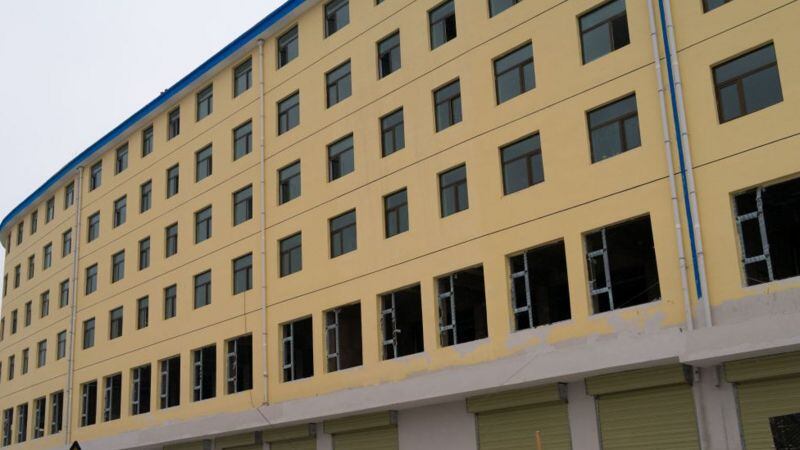
“If you look at the capital controls that exist within China and we look at the assets in which they can be invested, the property is one of the favorites. And many Chinese own more than one. They can have a second or third home ”, Lecornu tells BBC Mundo.
Often times what sets this market apart from any other in the world is that buyers often “pay an initial deposit equal to 50% of the house price or even buy directly in cash”Says the founder of Stonehorn Global Partners.
The use of bank loans, therefore, is not as intensive as in other large economies.
“Unlike what happened in the United States with the so-called crisis subprime, the Chinese are not massively buying their houses with debt”.
So how do they do it?
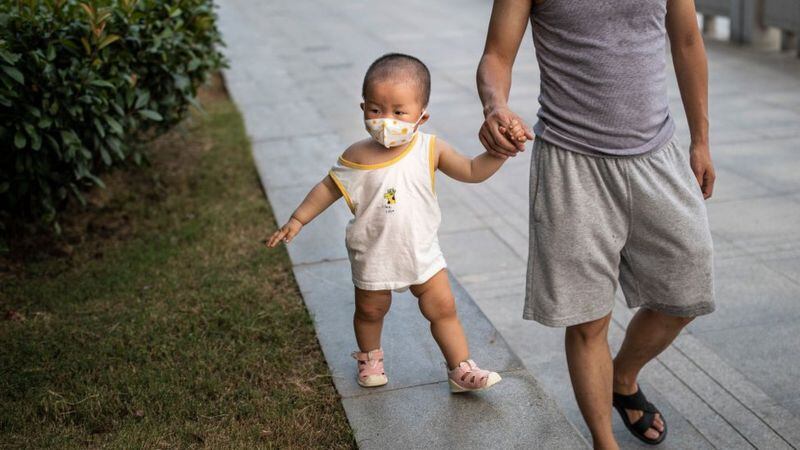
The “mom and dad bank”
For male children, in particular, it falls on the “mom and dad bank,” backed by the marriage market.
Because the law of the only child, there are around 30 million more men than women looking for a partner in China, according to the most recent official data.
Chinese parents know that your children’s chances of marrying increase if they are homeowners.
“It is customary for the husband to provide a house,” explained Jieyu Liu, deputy director of the China SOAS Institute, to the BBC in 2017, when it came to light that 70% of millennials Chinese (between 19 and 36 years old) owned a house.
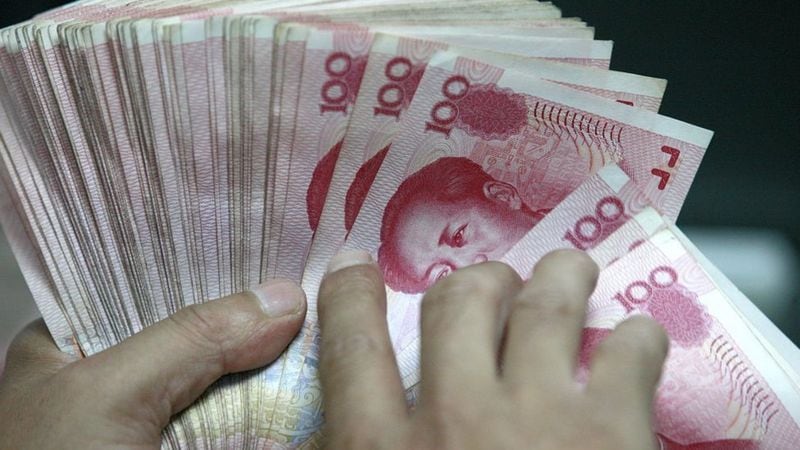
Very economical
“Since the salaries of young people are so low, the husband’s family is expected to take responsibility for buying a house in the name of their son, or paying the deposit. Many love stories end in failure if men cannot provide marital housing ”, he added.
To this is also added the fact that elderly family members often move in with their children in his last years of life.
So many see that investment in the name of their son or daughter as an investment in the future of the whole family.
The “family bank” is also the first resource for those looking for a second home, since turning to parents, grandparents or even brothers-in-law is not strange in the Chinese culture, very economical.
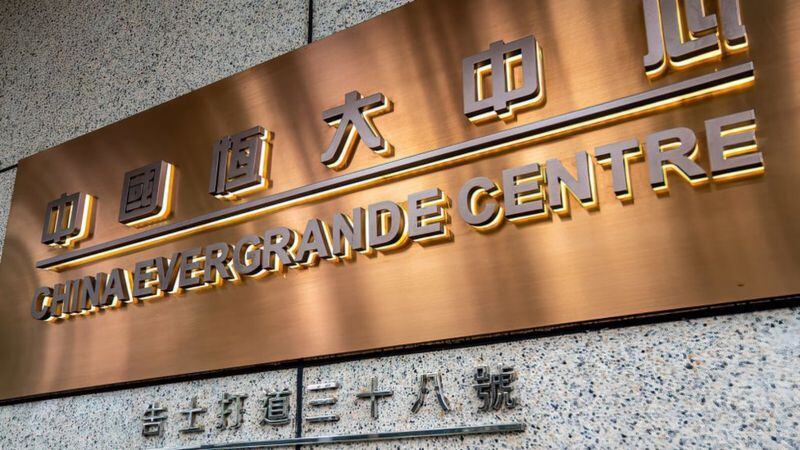
The case of Evergrande
In the heat of all these factors in the last decades a real estate industry with great benefits, which in some of its sectors has become uncontrolled.
The Asian giant’s real estate sector began to overheat in the late 1990s, when regulators at the time reached out to developers eager to take advantage of the brick boom chino.
Companies like Evergrande began to expand into the food, energy or even entertainment sector, with the purchase of a soccer team, and expanded their objectives to real estate developments abroad.
This expansion was made through bank debt or financed by deposits from home buyers in China.
The local governments and central government they played a key role in this growth.
“In addition to privatizing existing public housing and ending the provision of subsidized rental housing, private housing and property development have been fervently encouraged [por parte del gobierno]”, Collects in his report Professor Huang.
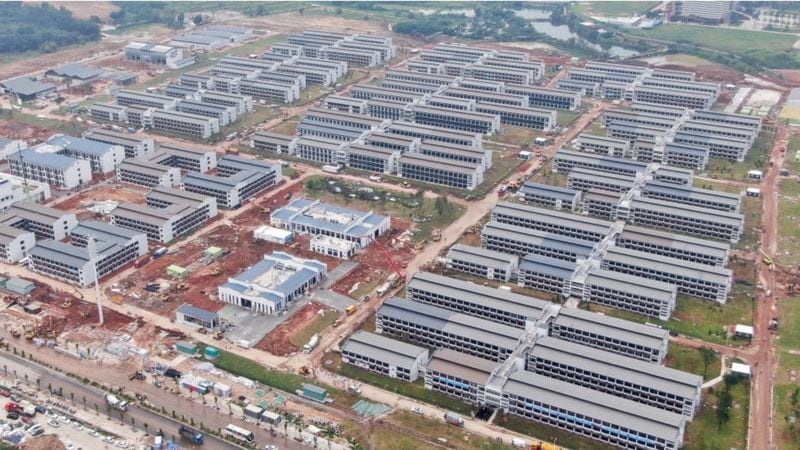
And it is that in China the land belongs to the state.
Any company or organization that wants to develop a project, be it housing, industrial or commercial, must obtain the right to use that land.
This right of use, however, has a time limit, in the case of residential project developments it is 70 years, after which the State may renew or revoke said right of use.
That is why real estate developers do not normally buy lots of land and keep them unbuilt for years while they revalue as in other countries.
“The government usually sells [el uso de] land selectively and in this process receives money from the sale of the land, which is a major source of government revenue”, Lecornu continues.
Beyond the real estate sector employing millions of people in China, it is correct to say that authorities at different levels had an interest in the model continuing to functionadds the expert.
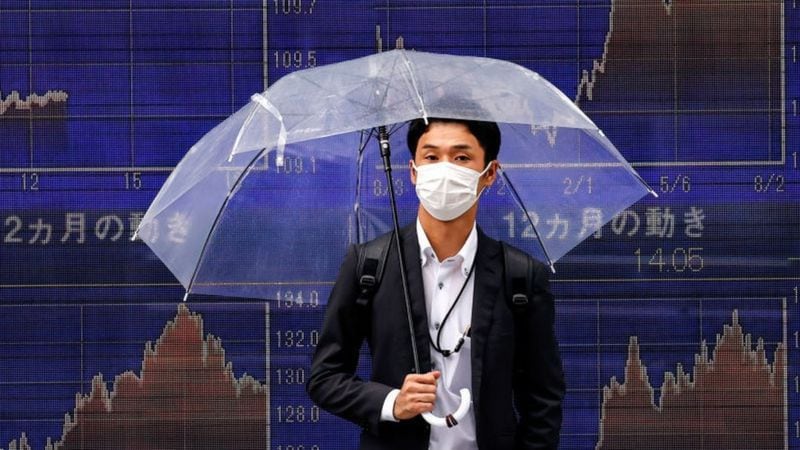
The role of banks
To understand the bubble and the possible domino effect of the Evergrande crisis, the role of the banks, also controlled by the state, is fundamental.
“The Chinese banks, insurers and funds have provided significant financing in recent years and the great exposure of Chinese banks to the real estate sector is one of the most important risks facing the Chinese financial system ”, says Eiko Sievert, director of the rating agency Scope Ratings.
The firm has lowered its growth expectations for China to 8.6% by 2021, from 9.3% due to “the weakness of the Chinese real estate sector, which has already slowed down national economic activity this year ”, he adds.
Hence, analysts agree that the possible social unrest that would create the more than one million homes that Evergrande has unfinished is a bigger problem than the debt itself.
“The largest political party in the world is also the largest property owner in China. It has a great interest in intervening and using all its powers to prevent further disturbances ”, Lecornu sentenced, referring to what will be the most imminent objective of Beijing: that citizens do not suffer and continue to trust the “Chinese dream”.
_______________________
- Pfizer predicts when the world will return to “normal life” after the pandemic but issues a warning
- Australia will start the deconfinement of Sydney on October 11
- Sabina Nessa, the 28-year-old teacher killed while walking in a London park
- 9/11, the attacks that shook the United States 20 years ago in the voice of its protagonists
- How Al Qaeda went from global terror to weak leadership 20 years after 9/11
- The unpublished images of 9/11 published by the US secret service 20 years after the attack | PHOTOS
.

:quality(75)/cloudfront-us-east-1.images.arcpublishing.com/elcomercio/BHMIV2ZAKJCUPHLPENF6BY7YYA.jpg)





